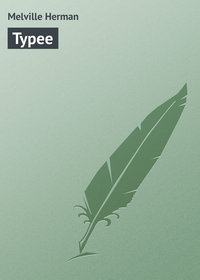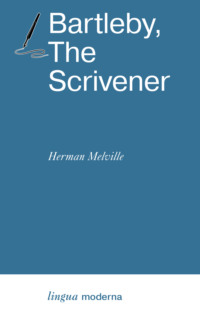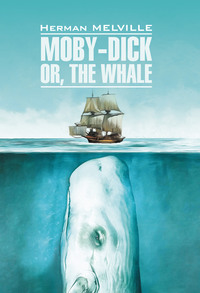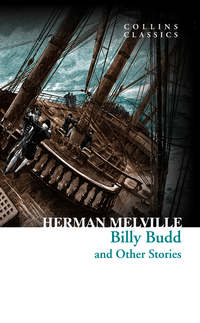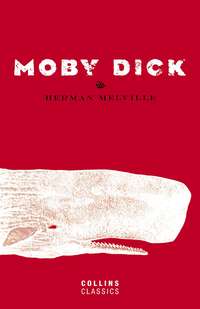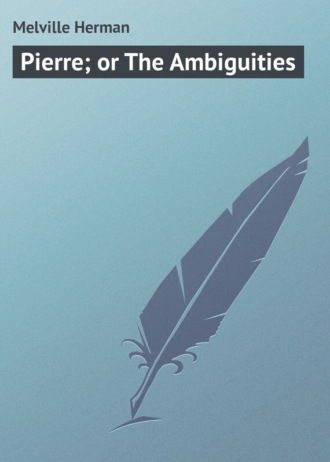
Pierre; or The Ambiguities
Yes, he was resolved to battle it out in his own solitary closet; though a strange, transcendental conceit of one of the more erratic and non-conforming Apostles, – who was also at this time engaged upon a profound work above stairs, and who denied himself his full sufficiency of food, in order to insure an abundant fire; – the strange conceit of this Apostle, I say, – accidentally communicated to Pierre, – that, through all the kingdoms of Nature, caloric was the great universal producer and vivifyer, and could not be prudently excluded from the spot where great books were in the act of creation; and therefore, he (the Apostle) for one, was resolved to plant his head in a hot-bed of stove-warmed air, and so force his brain to germinate and blossom, and bud, and put forth the eventual, crowning, victorious flower; – though indeed this conceit rather staggered Pierre – for in truth, there was no small smack of plausible analogy in it – yet one thought of his purse would wholly expel the unwelcome intrusion, and reinforce his own previous resolve.
However lofty and magnificent the movements of the stars; whatever celestial melodies they may thereby beget; yet the astronomers assure us that they are the most rigidly methodical of all the things that exist. No old housewife goes her daily domestic round with one millionth part the precision of the great planet Jupiter in his stated and unalterable revolutions. He has found his orbit, and stays in it; he has timed himself, and adheres to his periods. So, in some degree with Pierre, now revolving in the troubled orbit of his book.
Pierre rose moderately early; and the better to inure himself to the permanent chill of his room, and to defy and beard to its face, the cruelest cold of the outer air; he would – behind the curtain – throw down the upper sash of his window; and on a square of old painted canvas, formerly wrapping some bale of goods in the neighborhood, treat his limbs, of those early December mornings, to a copious ablution, in water thickened with incipient ice. Nor, in this stoic performance, was he at all without company, – not present, but adjoiningly sympathetic; for scarce an Apostle in all those scores and scores of chambers, but undeviatingly took his daily December bath. Pierre had only to peep out of his pane and glance round the multi-windowed, inclosing walls of the quadrangle, to catch plentiful half-glimpses, all round him, of many a lean, philosophical nudity, refreshing his meager bones with crash-towel and cold water. "Quick be the play," was their motto: "Lively our elbows, and nimble all our tenuities." Oh, the dismal echoings of the raspings of flesh-brushes, perverted to the filing and polishing of the merest ribs! Oh, the shuddersome splashings of pails of ice-water over feverish heads, not unfamiliar with aches! Oh, the rheumatical cracklings of rusted joints, in that defied air of December! for every thick-frosted sash was down, and every lean nudity courted the zephyr!
Among all the innate, hyena-like repellants to the reception of any set form of a spiritually-minded and pure archetypical faith, there is nothing so potent in its skeptical tendencies, as that inevitable perverse ridiculousness, which so often bestreaks some of the essentially finest and noblest aspirations of those men, who disgusted with the common conventional quackeries, strive, in their clogged terrestrial humanities, after some imperfectly discerned, but heavenly ideals: ideals, not only imperfectly discerned in themselves, but the path to them so little traceable, that no two minds will entirely agree upon it.
Hardly a new-light Apostle, but who, in superaddition to his revolutionary scheme for the minds and philosophies of men, entertains some insane, heterodoxical notions about the economy of his body. His soul, introduced by the gentlemanly gods, into the supernal society, – practically rejects that most sensible maxim of men of the world, who chancing to gain the friendship of any great character, never make that the ground of boring him with the supplemental acquaintance of their next friend, who perhaps, is some miserable ninny. Love me, love my dog, is only an adage for the old country-women who affectionately kiss their cows. The gods love the soul of a man; often, they will frankly accost it; but they abominate his body; and will forever cut it dead, both here and hereafter. So, if thou wouldst go to the gods, leave thy dog of a body behind thee. And most impotently thou strivest with thy purifying cold baths, and thy diligent scrubbings with flesh-brushes, to prepare it as a meet offering for their altar. Nor shall all thy Pythagorean and Shellian dietings on apple-parings, dried prunes, and crumbs of oat-meal cracker, ever fit thy body for heaven. Feed all things with food convenient for them, – that is, if the food be procurable. The food of thy soul is light and space; feed it then on light and space. But the food of thy body is champagne and oysters; feed it then on champagne and oysters; and so shall it merit a joyful resurrection, if there is any to be. Say, wouldst thou rise with a lantern jaw and a spavined knee? Rise with brawn on thee, and a most royal corporation before thee; so shalt thou in that day claim respectful attention. Know this: that while many a consumptive dietarian has but produced the merest literary flatulencies to the world; convivial authors have alike given utterance to the sublimest wisdom, and created the least gross and most ethereal forms. And for men of demonstrative muscle and action, consider that right royal epitaph which Cyrus the Great caused to be engraved on his tomb – "I could drink a great deal of wine, and it did me a great deal of good." Ah, foolish! to think that by starving thy body, thou shalt fatten thy soul! Is yonder ox fatted because yonder lean fox starves in the winter wood? And prate not of despising thy body, while still thou flourisheth thy flesh-brush! The finest houses are most cared for within; the outer walls are freely left to the dust and the soot. Put venison in thee, and so wit shall come out of thee. It is one thing in the mill, but another in the sack.
Now it was the continual, quadrangular example of those forlorn fellows, the Apostles, who, in this period of his half-developments and transitions, had deluded Pierre into the Flesh-Brush Philosophy, and had almost tempted him into the Apple-Parings Dialectics. For all the long wards, corridors, and multitudinous chambers of the Apostles' were scattered with the stems of apples, the stones of prunes, and the shells of peanuts. They went about huskily muttering the Kantian Categories through teeth and lips dry and dusty as any miller's, with the crumbs of Graham crackers. A tumbler of cold water was the utmost welcome to their reception rooms; at the grand supposed Sanhedrim presided over by one of the deputies of Plotinus Plinlimmon, a huge jug of Adam's Ale, and a bushel-basket of Graham crackers were the only convivials. Continually bits of cheese were dropping from their pockets, and old shiny apple parchments were ignorantly exhibited every time they drew out a manuscript to read you. Some were curious in the vintages of waters; and in three glass decanters set before you, Fairmount, Croton, and Cochituate; they held that Croton was the most potent, Fairmount a gentle tonic, and Cochituate the mildest and least inebriating of all. Take some more of the Croton, my dear sir! Be brisk with the Fairmount! Why stops that Cochituate? So on their philosophical tables went round their Port, their Sherry, and their Claret.
Some, further advanced, rejected mere water in the bath, as altogether too coarse an element; and so, took to the Vapor-baths, and steamed their lean ribs every morning. The smoke which issued from their heads, and overspread their pages, was prefigured in the mists that issued from under their door-sills and out of their windows. Some could not sit down of a morning until after first applying the Vapor-bath outside and then thoroughly rinsing out their interiors with five cups of cold Croton. They were as faithfully replenished fire-buckets; and could they, standing in one cordon, have consecutively pumped themselves into each other, then the great fire of 1835 had been far less wide-spread and disastrous.
Ah! ye poor lean ones! ye wretched Soakites and Vaporites! have not your niggardly fortunes enough rinsed ye out, and wizened ye, but ye must still be dragging the hose-pipe, and throwing still more cold Croton on yourselves and the world? Ah! attach the screw of your hose-pipe to some fine old butt of Madeira! pump us some sparkling wine into the world! see, see, already, from all eternity, two-thirds of it have lain helplessly soaking!
IIWITH cheek rather pale, then, and lips rather blue, Pierre sits down to his plank.
But is Pierre packed in the mail for St. Petersburg this morning? Over his boots are his moccasins; over his ordinary coat is his surtout; and over that, a cloak of Isabel's. Now he is squared to his plank; and at his hint, the affectionate Isabel gently pushes his chair closer to it, for he is so muffled, he can hardly move of himself. Now Delly comes in with bricks hot from the stove; and now Isabel and she with devoted solicitude pack away these comforting stones in the folds of an old blue cloak, a military garment of the grandfather of Pierre, and tenderly arrange it both over and under his feet; but putting the warm flagging beneath. Then Delly brings still another hot brick to put under his inkstand, to prevent the ink from thickening. Then Isabel drags the camp-bedstead nearer to him, on which are the two or three books he may possibly have occasion to refer to that day, with a biscuit or two, and some water, and a clean towel, and a basin. Then she leans against the plank by the elbow of Pierre, a crook-ended stick. Is Pierre a shepherd, or a bishop, or a cripple? No, but he has in effect, reduced himself to the miserable condition of the last. With the crook-ended cane, Pierre – unable to rise without sadly impairing his manifold intrenchments, and admitting the cold air into their innermost nooks, – Pierre, if in his solitude, he should chance to need any thing beyond the reach of his arm, then the crook-ended cane drags it to his immediate vicinity.
Pierre glances slowly all round him; every thing seems to be right; he looks up with a grateful, melancholy satisfaction at Isabel; a tear gathers in her eye; but she conceals it from him by coming very close to him, stooping over, and kissing his brow. 'Tis her lips that leave the warm moisture there; not her tears, she says.
"I suppose I must go now, Pierre. Now don't, don't be so long to-day. I will call thee at half-past four. Thou shalt not strain thine eyes in the twilight."
"We will see about that," says Pierre, with an unobserved attempt at a very sad pun. "Come, thou must go. Leave me."
And there he is left.
Pierre is young; heaven gave him the divinest, freshest form of a man; put light into his eye, and fire into his blood, and brawn into his arm, and a joyous, jubilant, overflowing, upbubbling, universal life in him everywhere. Now look around in that most miserable room, and at that most miserable of all the pursuits of a man, and say if here be the place, and this be the trade, that God intended him for. A rickety chair, two hollow barrels, a plank, paper, pens, and infernally black ink, four leprously dingy white walls, no carpet, a cup of water, and a dry biscuit or two. Oh, I hear the leap of the Texan Camanche, as at this moment he goes crashing like a wild deer through the green underbrush; I hear his glorious whoop of savage and untamable health; and then I look in at Pierre. If physical, practical unreason make the savage, which is he? Civilization, Philosophy, Ideal Virtue! behold your victim!
IIISOME hours pass. Let us peep over the shoulder of Pierre, and see what it is he is writing there, in that most melancholy closet. Here, topping the reeking pile by his side, is the last sheet from his hand, the frenzied ink not yet entirely dry. It is much to our purpose; for in this sheet, he seems to have directly plagiarized from his own experiences, to fill out the mood of his apparent author-hero, Vivia, who thus soliloquizes: "A deep-down, unutterable mournfulness is in me. Now I drop all humorous or indifferent disguises, and all philosophical pretensions. I own myself a brother of the clod, a child of the Primeval Gloom. Hopelessness and despair are over me, as pall on pall. Away, ye chattering apes of a sophomorean Spinoza and Plato, who once didst all but delude me that the night was day, and pain only a tickle. Explain this darkness, exorcise this devil, ye can not. Tell me not, thou inconceivable coxcomb of a Goethe, that the universe can not spare thee and thy immortality, so long as – like a hired waiter – thou makest thyself 'generally useful.' Already the universe gets on without thee, and could still spare a million more of the same identical kidney. Corporations have no souls, and thy Pantheism, what was that? Thou wert but the pretensious, heartless part of a man. Lo! I hold thee in this hand, and thou art crushed in it like an egg from which the meat hath been sucked."
Here is a slip from the floor.
"Whence flow the panegyrical melodies that precede the march of these heroes? From what but from a sounding brass and a tinkling cymbal!"
And here is a second.
"Cast thy eye in there on Vivia; tell me why those four limbs should be clapt in a dismal jail – day out, day in – week out, week in – month out, month in – and himself the voluntary jailer! Is this the end of philosophy? This the larger, and spiritual life? This your boasted empyrean? Is it for this that a man should grow wise, and leave off his most excellent and calumniated folly?"
And here is a third.
"Cast thy eye in there on Vivia; he, who in the pursuit of the highest health of virtue and truth, shows but a pallid cheek! Weigh his heart in thy hand, oh, thou gold-laced, virtuoso Goethe! and tell me whether it does not exceed thy standard weight!"
And here is a fourth.
"Oh God, that man should spoil and rust on the stalk, and be wilted and threshed ere the harvest hath come! And oh God, that men that call themselves men should still insist on a laugh! I hate the world, and could trample all lungs of mankind as grapes, and heel them out of their breath, to think of the woe and the cant, – to think of the Truth and the Lie! Oh! blessed be the twenty-first day of December, and cursed be the twenty-first day of June!"
From these random slips, it would seem, that Pierre is quite conscious of much that is so anomalously hard and bitter in his lot, of much that is so black and terrific in his soul. Yet that knowing his fatal condition does not one whit enable him to change or better his condition. Conclusive proof that he has no power over his condition. For in tremendous extremities human souls are like drowning men; well enough they know they are in peril; well enough they know the causes of that peril; – nevertheless, the sea is the sea, and these drowning men do drown.
IVFROM eight o'clock in the morning till half-past four in the evening, Pierre sits there in his room; – eight hours and a half!
From throbbing neck-bands, and swinging belly-bands of gay-hearted horses, the sleigh-bells chimingly jingle; – but Pierre sits there in his room; Thanksgiving comes, with its glad thanks, and crisp turkeys; – but Pierre sits there in his room; soft through the snows, on tinted Indian moccasin, Merry Christmas comes stealing; – but Pierre sits there in his room; it is New-Year's, and like a great flagon, the vast city overbrims at all curb-stones, wharves, and piers, with bubbling jubilations; – but Pierre sits there in his room: – Nor jingling sleigh-bells at throbbing neck-band, or swinging belly-band; nor glad thanks, and crisp turkeys of Thanksgiving; nor tinted Indian moccasin of Merry Christmas softly stealing through the snows; nor New-Year's curb-stones, wharves, and piers, over-brimming with bubbling jubilations: – Nor jingling sleigh-bells, nor glad Thanksgiving, nor Merry Christmas, nor jubilating New Year's: – Nor Bell, Thank, Christ, Year; – none of these are for Pierre. In the midst of the merriments of the mutations of Time, Pierre hath ringed himself in with the grief of Eternity. Pierre is a peak inflexible in the heart of Time, as the isle-peak, Piko, stands unassaultable in the midst of waves.
He will not be called to; he will not be stirred. Sometimes the intent ear of Isabel in the next room, overhears the alternate silence, and then the long lonely scratch of his pen. It is, as if she heard the busy claw of some midnight mole in the ground. Sometimes, she hears a low cough, and sometimes the scrape of his crook-handled cane.
Here surely is a wonderful stillness of eight hours and a half, repeated day after day. In the heart of such silence, surely something is at work. Is it creation, or destruction? Builds Pierre the noble world of a new book? or does the Pale Haggardness unbuild the lungs and the life in him? – Unutterable, that a man should be thus!
When in the meridian flush of the day, we recall the black apex of night; then night seems impossible; this sun can never go down. Oh that the memory of the uttermost gloom as an already tasted thing to the dregs, should be no security against its return. One may be passibly well one day, but the next, he may sup at black broth with Pluto.
Is there then all this work to one book, which shall be read in a very few hours; and, far more frequently, utterly skipped in one second; and which, in the end, whatever it be, must undoubtedly go to the worms?
Not so; that which now absorbs the time and the life of Pierre, is not the book, but the primitive elementalizing of the strange stuff, which in the act of attempting that book, have upheaved and upgushed in his soul. Two books are being writ; of which the world shall only see one, and that the bungled one. The larger book, and the infinitely better, is for Pierre's own private shelf. That it is, whose unfathomable cravings drink his blood; the other only demands his ink. But circumstances have so decreed, that the one can not be composed on the paper, but only as the other is writ down in his soul. And the one of the soul is elephantinely sluggish, and will not budge at a breath. Thus Pierre is fastened on by two leeches; – how then can the life of Pierre last? Lo! he is fitting himself for the highest life, by thinning his blood and collapsing his heart. He is learning how to live, by rehearsing the part of death.
Who shall tell all the thoughts and feelings of Pierre in that desolate and shivering room, when at last the idea obtruded, that the wiser and the profounder he should grow, the more and the more he lessened the chances for bread; that could he now hurl his deep book out of the window, and fall to on some shallow nothing of a novel, composable in a month at the longest, then could he reasonably hope for both appreciation and cash. But the devouring profundities, now opened up in him, consume all his vigor; would he, he could not now be entertainingly and profitably shallow in some pellucid and merry romance. Now he sees, that with every accession of the personal divine to him, some great land-slide of the general surrounding divineness slips from him, and falls crashing away. Said I not that the gods, as well as mankind, had unhanded themselves from this Pierre? So now in him you behold the baby toddler I spoke of; forced now to stand and toddle alone.
Now and then he turns to the camp-bed, and wetting his towel in the basin, presses it against his brow. Now he leans back in his chair, as if to give up; but again bends over and plods.
Twilight draws on, the summons of Isabel is heard from the door; the poor, frozen, blue-lipped, soul-shivering traveler for St. Petersburg is unpacked; and for a moment stands toddling on the floor. Then his hat, and his cane, and out he sallies for fresh air. A most comfortless staggering of a stroll! People gaze at him passing, as at some imprudent sick man, willfully burst from his bed. If an acquaintance is met, and would say a pleasant newsmonger's word in his ear, that acquaintance turns from him, affronted at his hard aspect of icy discourtesy. "Bad-hearted," mutters the man, and goes on.
He comes back to his chambers, and sits down at the neat table of Delly; and Isabel soothingly eyes him, and presses him to eat and be strong. But his is the famishing which loathes all food. He can not eat but by force. He has assassinated the natural day; how then can he eat with an appetite? If he lays him down, he can not sleep; he has waked the infinite wakefulness in him; then how can he slumber? Still his book, like a vast lumbering planet, revolves in his aching head. He can not command the thing out of its orbit; fain would he behead himself, to gain one night's repose. At last the heavy hours move on; and sheer exhaustion overtakes him, and he lies still – not asleep as children and day-laborers sleep – but he lies still from his throbbings, and for that interval holdingly sheaths the beak of the vulture in his hand, and lets it not enter his heart.
Morning comes; again the dropt sash, the icy water, the flesh-brush, the breakfast, the hot bricks, the ink, the pen, the from-eight-o'clock-to-half-past-four, and the whole general inclusive hell of the same departed day.
Ah! shivering thus day after day in his wrappers and cloaks, is this the warm lad that once sung to the world of the Tropical Summer?
BOOK XXIII.
A LETTER FOR PIERRE. ISABEL. ARRIVAL OF LUCY'S EASEL AND TRUNKS AT THE APOSTLES'
IIF a frontier man be seized by wild Indians, and carried far and deep into the wilderness, and there held a captive, with no slightest probability of eventual deliverance; then the wisest thing for that man is to exclude from his memory by every possible method, the least images of those beloved objects now forever reft from him. For the more delicious they were to him in the now departed possession, so much the more agonizing shall they be in the present recalling. And though a strong man may sometimes succeed in strangling such tormenting memories; yet, if in the beginning permitted to encroach upon him unchecked, the same man shall, in the end, become as an idiot. With a continent and an ocean between him and his wife – thus sundered from her, by whatever imperative cause, for a term of long years; – the husband, if passionately devoted to her, and by nature broodingly sensitive of soul, is wise to forget her till he embrace her again; – is wise never to remember her if he hear of her death. And though such complete suicidal forgettings prove practically impossible, yet is it the shallow and ostentatious affections alone which are bustling in the offices of obituarian memories. The love deep as death– what mean those five words, but that such love can not live, and be continually remembering that the loved one is no more? If it be thus then in cases where entire unremorsefulness as regards the beloved absent objects is presumed, how much more intolerable, when the knowledge of their hopeless wretchedness occurs, attended by the visitations of before latent upbraidings in the rememberer as having been any way – even unwillingly – the producers of their sufferings. There seems no other sane recourse for some moody organizations on whom such things, under such circumstances intrude, but right and left to flee them, whatever betide.
If little or nothing hitherto has been said of Lucy Tartan in reference to the condition of Pierre after his departure from the Meadows, it has only been because her image did not willingly occupy his soul. He had striven his utmost to banish it thence; and only once – on receiving the tidings of Glen's renewed attentions – did he remit the intensity of those strivings, or rather feel them, as impotent in him in that hour of his manifold and overwhelming prostration.
Not that the pale form of Lucy, swooning on her snow-white bed; not that the inexpressible anguish of the shriek – "My heart! my heart!" would not now at times force themselves upon him, and cause his whole being to thrill with a nameless horror and terror. But the very thrillingness of the phantom made him to shun it, with all remaining might of his spirit.
Nor were there wanting still other, and far more wonderful, though but dimly conscious influences in the breast of Pierre, to meet as repellants the imploring form. Not to speak of his being devoured by the all-exacting theme of his book, there were sinister preoccupations in him of a still subtler and more fearful sort, of which some inklings have already been given.


